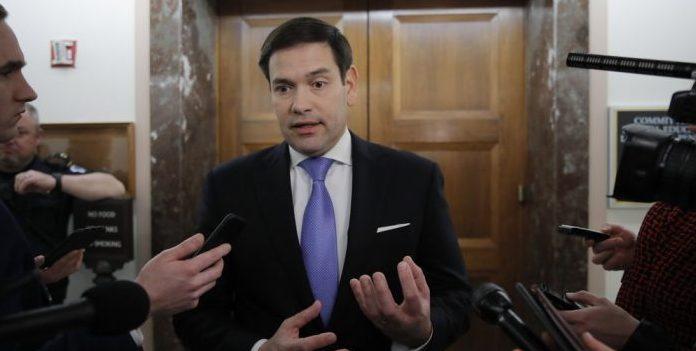(The Center Square) Following through on a pledge he made while still in the U.S. Senate, Secretary of State Marco Rubio began restricting visa policies on Wednesday to protect Americans.
Rubio first announced visa restrictions for foreign nationals who censor Americans.
A few hours later, he announced the U.S. State Department was working with the Department of Homeland Security to aggressively revoke visas for Chinese students, including those with connections to the Chinese Communist Party or studying in critical fields.
The State Department also will be revising visa criteria to enhance scrutiny of all future visa applications from the People’s Republic of China and Hong Kong, he said, adding that the new visa policies would “put America first, not China.”
The announcement came as the greatest number of Chinese nationals illegally entered the U.S. in recorded history under the Biden administration, at least 176,000, The Center Square reported.
While in the Senate, Rubio and others expressed alarm about national security threats posed by the Chinese Communist Party, Chinese intelligence outposts operating in the U.S., Chinese and other illegal border crossers breaching U.S. military bases, The Center Square reported.
The first visa restriction policy was implemented to protect Americans’ First Amendment right to free speech, a right, Rubio argues, sets America “apart as a beacon of freedom around the world.”
“Even as we take action to reject censorship at home, we see troubling instances of foreign governments and foreign officials picking up the slack,” he said. “In some instances, foreign officials have taken flagrant censorship actions against U.S. tech companies and U.S. citizens and residents when they have no authority to do so.”
The new visa restriction policy applies to foreign nationals who censor protected expression in the United States.
“It is unacceptable for foreign officials to issue or threaten arrest warrants on U.S. citizens or U.S. residents for social media posts on American platforms while physically present on U.S. soil,” Rubio said. “It is similarly unacceptable for foreign officials to demand that American tech platforms adopt global content moderation policies or engage in censorship activity that reaches beyond their authority and into the United States. We will not tolerate encroachments upon American sovereignty, especially when such encroachments undermine the exercise of our fundamental right to free speech.”
Section 212(a)(3)(C) of the Immigration and Nationality Act of 1996 authorizes the Secretary of State “to render inadmissible any alien” whose entry into the U.S. “would have potentially serious adverse foreign policy consequences for the United States.”
The visa restrictions may also apply to certain family members.
The policy is a marked reversal of Biden administration policies, which instead of targeting threats to Americans for removal and visa revocation, extended temporary protective status to roughly one million illegal foreign nationals, including Palestinians and pro-Hamas rioters who threatened Jewish and Israeli Americans, The Center Square reported.

